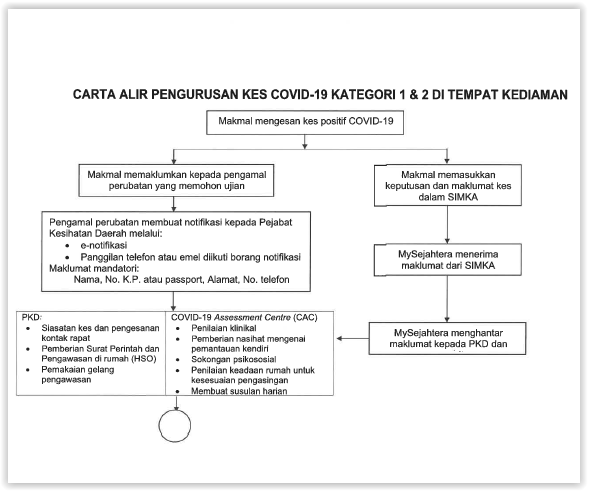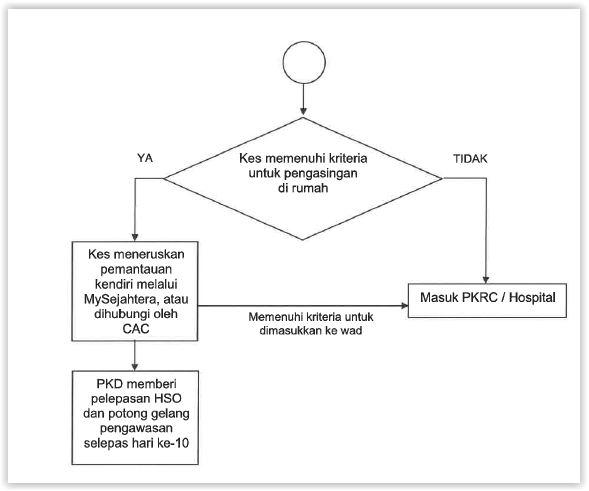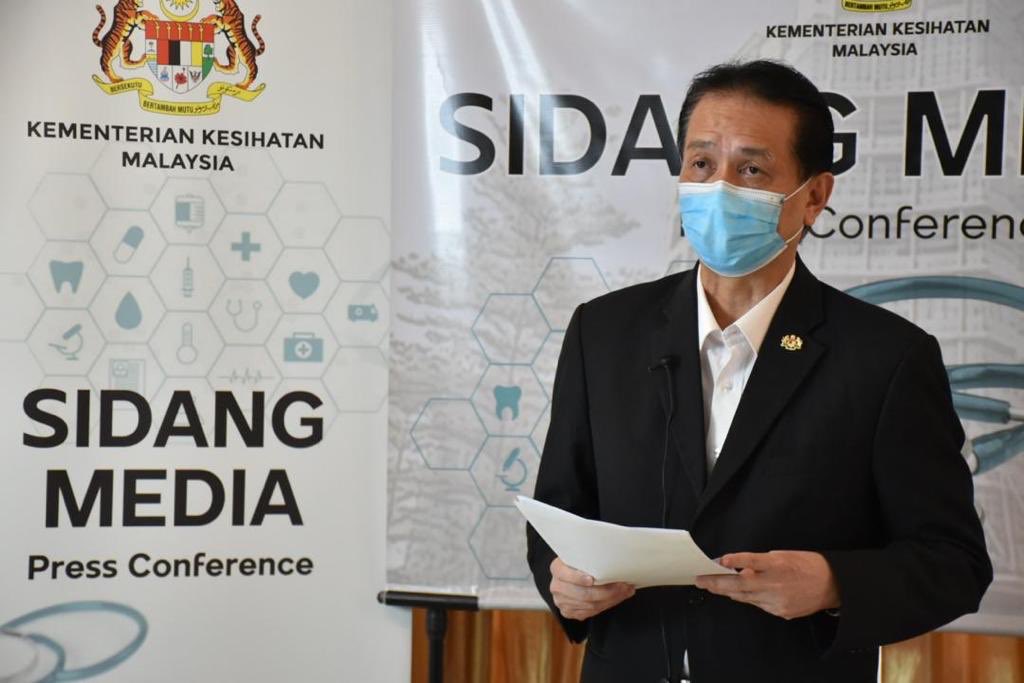KUALA LUMPUR, Jan 14 — The Ministry of Health (MOH) has instructed home quarantine, if suitable, for all close contacts of positive Covid-19 cases, but will only test those with coronavirus symptoms.
Health director-general Dr Noor Hisham Abdullah, in a January 13 letter to state health department directors, also said the number of test samples to be taken for Covid-19 clusters or close contacts depends on the size of the cohort. A cohort is defined as the total number of individuals exposed to the virus in a cluster.
If fewer than 50 people are exposed to Covid-19 in a cluster, then 20 test samples are sufficient. If the cohort exceeds 50 people, 30 test samples are enough, or 10 per cent of the cohort, whichever is lower.
“Quarantine is to be done for 10 days from the last date of exposure to a positive case with health self-monitoring,” Dr Noor Hisham said in his letter, sighted by CodeBlue.
“If there are symptomatic individuals, such cases are to be isolated and tested for Covid-19. Quarantine on this cohort must be continued for 10 more days from the date the case tested positive for Covid-19. Testing on Day 10 is not required.”
The Health DG’s circular came into effect yesterday.
Malaysia’s limits on Covid-19 testing appear to contradict World Health Organization (WHO) guidance. WHO, in an interim guidance dated December 16, 2020 on public health surveillance for Covid-19, stated: “Where possible, individuals who have signs and symptoms of Covid-19 and all suspected cases should be able to access evaluation and testing, ideally, at the primary care level.”
By only quarantining, but not testing people who may be infected with Covid-19 without symptoms, these people will not show up in MOH’s official reporting of coronavirus cases and thus, artificially show a lower number of cases than reality.
While isolating all close contacts of positive Covid-19 cases may limit virus transmission, but not testing asymptomatic people may mislead them into believing they’re free of the virus and any related health complications. A study published in Nature Medicine in June last year found that many asymptomatic cases developed signs of minor lung inflammation — described as “walking pneumonia” — while showing no other Covid-19 symptoms. NPR reported that some people who appear asymptomatic at first later do develop conventional Covid-19 symptoms like fever, fatigue, and breathing difficulties.
MOH has been reporting about 2,000 daily Covid-19 cases on average in the past week, amid anecdotal reports of slow testing, contact tracing, and hospitalisation. The government is under pressure to reduce new infections with the enforcement of a two-week lockdown in the capital city and five states, which public health experts have said is not sufficiently long and may not produce results without a clear strategy.
MOH’s new policy on the management of close contacts of positive Covid-19 cases and home quarantine for asymptomatic and mild cases was implemented after the National Security Council’s (NSC) January 4 meeting and MOH’s disaster management executive committee’s January 11 meeting decided to place Category 1 (asymptomatic) and Category 2 Covid-19 cases (mild symptoms) in self-isolation at home, place of residence, or hotel; or a low-risk quarantine and treatment centre (PKRC); or hospital, according to the suitability of the infected person’s place of residence.
The Health DG also said all close contacts who test negative for Covid-19 must be quarantined according to their cohort in their place of residence, such as prison cells, workers’ dormitories or hostels, or a suitable home, based on the risk evaluation of the exposed individual and the premise to be used for self-isolation.
Category 1 and 2 Covid-19 cases (asymptomatic and mild cases) among workers can be isolated in workers’ dormitories, according to the suitability of such premises. If such premises are not suitable, employers are required to prepare a suitable place for self-isolation like a hotel.
Employers are also required to bear the costs of Covid-19 testing for foreign employees ordered by health officials to undergo screening, if these tests are done in a health facility or laboratory run by the government.
Management Of Covid-19 Cases At Home


Dr Noor Hisham said for the management of positive Covid-19 cases at home, the district health office will receive notification of Covid-19 cases from medical practitioners or from a list of cases in MOH’s MySejahtera Covid-19 management app.
The district health office will prepare a list of positive Covid-19 cases once a day, every day, to call people infected with coronavirus to evaluate their health status, the seriousness of their disease, and suitability for self-isolation at home.
State health departments are required to identify a suitable location to set up a Covid-19 Assessment Centre (CAC) to evaluate Covid-19 patients, covering clinical evaluation, support of the patient’s family members, and suitability of the patient’s place of residence for self-isolation.
The Health DG said state health departments can form the CAC at a public health clinic (Klinik Kesihatan), village clinic (Klinik Desa), community clinic, maternal and child health clinic, or a PKRC.
Health officials’ method of evaluation during the 10-day home quarantine of positive Covid-19 cases can be done physically or through virtual consultation by using a form that lists symptoms, such as sore throat or flu; cough; fever; difficulty breathing; loss of smell or taste; diarrhoea; nausea; lethargy; muscle or chest pain; difficulty getting up from bed; among others. Dr Noor Hisham recommended that the first evaluation be done in-person.








